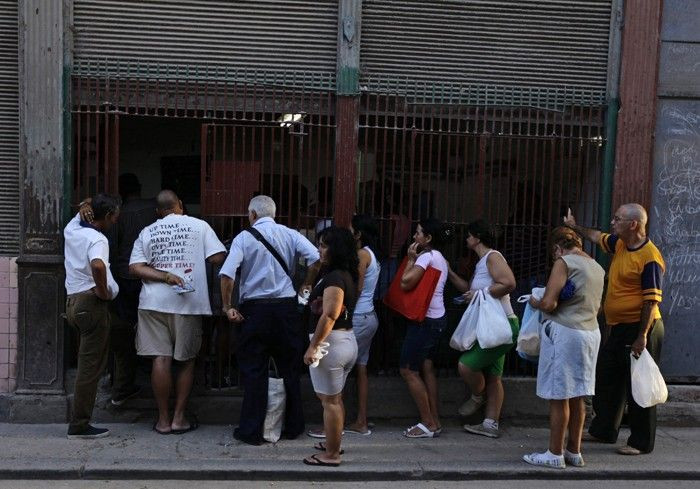Castro says Cuba's mass layoffs delayed

* Castro says more time needed for layoffs
* Workers have been cut, but numbers not believed high
* Slowdown's effect on economic reforms not yet known
Cuban President Raul Castro has admitted that plans to lay off 500,000 state workers by March are behind schedule and that the process will be delayed to help soften the impact of the cuts, state-run television said on Monday.
The layoffs are a centerpiece of his reforms to modernize Cuba's Soviet-style economy, but the report said Castro told the government's Council of Ministers that a project of this magnitude, which affects in one way or another so many citizens, cannot be framed in inflexible periods.
Taking into account the delay in the start of the process, Castro advised to adjust the timeline of its execution, at the same time that he reiterated the will of the Cuban state to leave no one unprotected, it said.
The report did not say how long the layoffs would take, but said the speed would depend on the capacity to create proper organizational and legal conditions.
Castro's plan had called for the government to slash 500,000 nonproductive workers by March 31 and another 500,000 in the next few years, or about 20 percent of the island's workforce, to reduce state expenditures and encourage more productive activities.
Castro has said the reforms, which encourage more private initiative and lighten the state's hand in the economy, are critical to the survival of Cuban communism.
Workers have been cut in some ministries, but the numbers are not believed to be high and have not been disclosed.
Many Cubans welcomed the layoff plan, saying it was long overdue, but many others were nervous about losing their jobs in a country that has basically guaranteed employment and provided social benefits for little or no cost.
The average Cuban makes the equivalent of about $20 a month.
The government has said that those laid off, which it calls available workers, would be offered jobs in sectors where there is a shortage of labor, such as agriculture, construction and education.
A recent newspaper report said the plan had gotten off to a slow start because of poor communications and because thousands of committees that will decide who would be fired were not well prepared for the task.
It was not yet known whether the slowdown would affect Castro's overall reform program, which is to be officially approved at a congress of the ruling Communist Party in April.
Cuba's economy is burdened by billions of dollars of debt, dependence on imports, expensive social programs, government bungling and effects of the long-standing U.S. trade embargo against the island.
The government is the midst of issuing 250,000 licenses for self-employment, which already has resulted in a relative boom in small businesses selling items from food to pirated DVDs. (Reporting by Esteban Israel; Writing by Jeff Franks; Editing by Peter Cooney)
© Copyright Thomson Reuters 2024. All rights reserved.





















